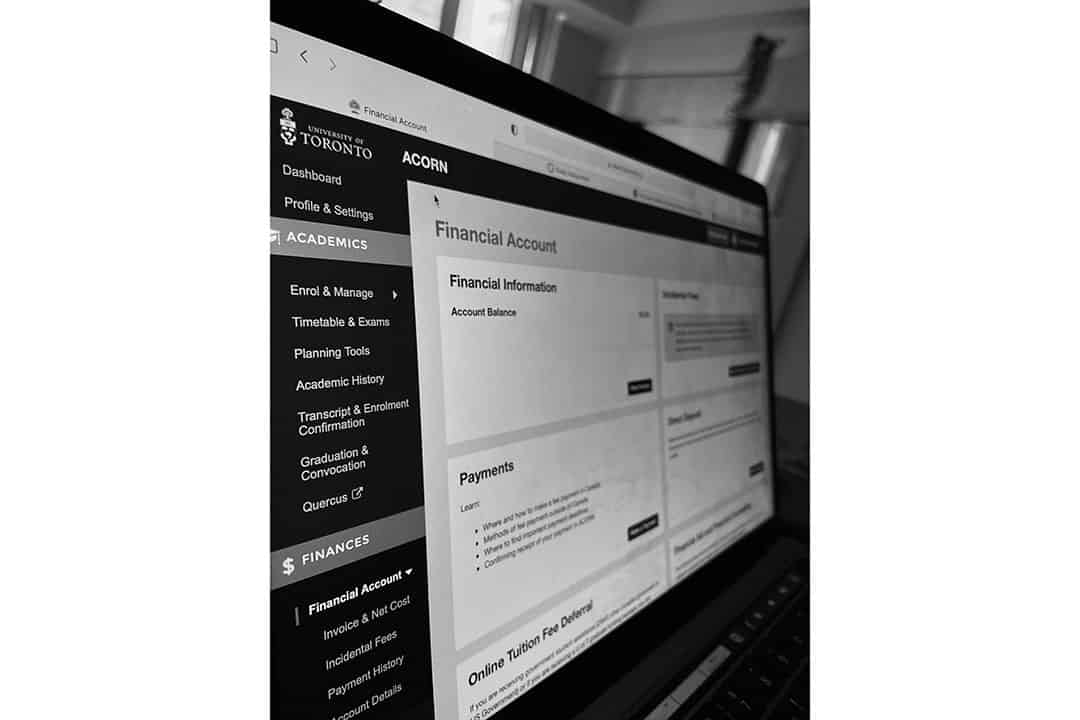In a meeting on March 31, U of T’s Governing Council passed its proposed tuition fee schedule for the 2022–2023 academic year, despite encountering objections from three student governors present, as well as students from a variety of student groups. The newly passed schedule will increase non-Ontario domestic students’ fee by three per cent, international undergraduate student tuition fees by two per cent, and graduate student fees by about three percent.
Other topics discussed and passed at the meeting included two construction project proposals — a new graduate residence and an Emerging and Pandemic Infections Centres (EPIC) building. Council members also discussed the creation of an anti-Asian racism response taskforce.
Tuition schedule and fee increases
Beginning next academic year, undergraduate domestic students arriving at U of T from outside Ontario will see a three per cent increase in tuition fees, while international students will see a two per cent increase.
This increase is part of a larger trend at U of T of increasing tuition fees, as the province has frozen domestic tuition while cutting provincial funding for postsecondary education. Increasingly, the university has looked for other avenues for revenue — especially through raising international tuition.
The motion to adopt the proposed fee schedule was passed with objections. Three student governors voted against the new tuition schedule.
Students’ concerns about differentiating fees
Students representing the computer science program, the Juris Doctor program, and the Indigenous community gave speeches at the meeting to voice their objections to the proposed tuition framework. They described the new fee schedule as opportunistic, divisive, and harmful to regional diversity. They believe it will discourage students arriving from outside of the province from attending U of T.
Vice-President and Provost Cheryl Regehr defended the decision, saying that U of T is not unique in adopting such a policy. Given the declining funding from the government and tuition freeze for Ontario students, she said, the university has to “explore all policy options.”
She further noted that the plan is based on extensive consultation and data analysis, and that it is an essential part of the budget.
In an email to The Varsity, Evan Kanter, a full-time undergraduate student governor studying computer science, wrote that he believes both fee increases do not align with the university’s values and students’ interests.
Kanter further noted that increasing tuition for non-Ontario resident domestic students is also inconsistent with the university’s own policy. He explained that the funding U of T receives from the province is calculated based on the number of all domestic students it receives, not just Ontario residents. “So, there is no principle that justifies charging students from outside of Ontario higher fees,” he claimed.
Willem Crispin-Frei, a third-year Juris Doctor student, spoke at the meeting. He said that differentiating fees for in- and out-of-province students would imply that U of T prefers Ontario students over those from other provinces, and such an implication would damage U of T’s reputation and prestige nationally. “The university has not divided Canadian students like this before,” said Crispin-Frei.
Crispin-Frei said that the two-tier domestic tuition framework — which is more commonly practiced in the United States — has led to less regional diversity in the student bodies of universities that adopted it. He also mentioned that in order to recruit students from all over the country, top American law schools such as Harvard, Yale, Stanford, Columbia, New York University, and the University of Chicago maintain institutionally standardized domestic fees.
“If the Governing Council adopts this new fee framework, other universities across the country will follow suit. Canada, as a country, will have fewer students share ideas across provincial and territorial borders,” Crispin-Frei said.
Jaime Kearns, an Indigenous student and president of the Association of Part-Time Undergraduate Students at U of T, said that the two-tier domestic fee system would also have a detrimental impact on Indigenous students. She noted that Indigenous students at U of T are from communities across the country, and a lot of these communities are small in size, with limited resources and funding.
As part of its Truth and Reconciliation campaign, U of T had pledged to increase recruitment and retention of Indigenous students. Kearns questioned this commitment and worried that members of Indigenous communities may be unable to pay the increased out-of-province fees, resulting in access to U of T becoming impossible. Graduation rates among Indigenous students could also drop as a result.
“This differential fee system will limit students at U of T to only those who live in Ontario or those who are willing to leave their home communities if they are from out-of-province,” said Kearns.
Other updates
At the meeting, President Meric Gertler announced that U of T will also form an anti-Asian racism taskforce. He said that U of T is not immune to the trend of growing anti-Asian racism and hopes the taskforce will combat such racism and promote inclusion on all U of T campuses. There have been two instances of anti-Asian racism on campus this year.
Council members also discussed two new construction projects. One of them was a new graduate residence that would expand the current Graduate House and the other was a new building for the EPIC. Both projects were passed unanimously.
Scott Mabury, Vice-President, Operations and Real Estate Partnerships, said that the new EPIC facility would allow U of T to work on researching noxious viral and bacterial organisms.
He said that the current facilities at the Medical Science Building have been operating years beyond their lifetime. A new facility, Mabury noted, would enhance U of T’s ability to contribute knowledge to important research areas, such as the study of COVID-19.


